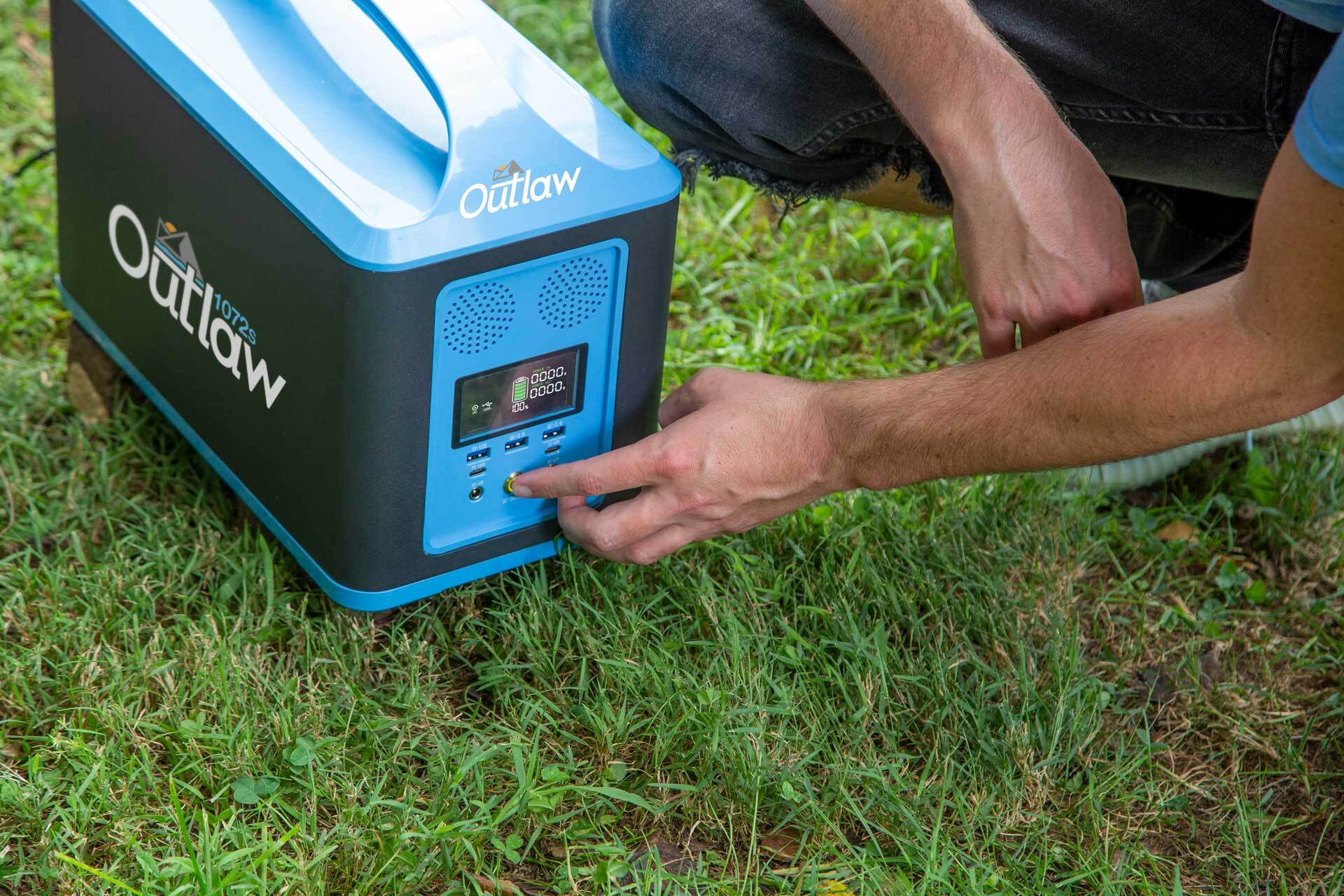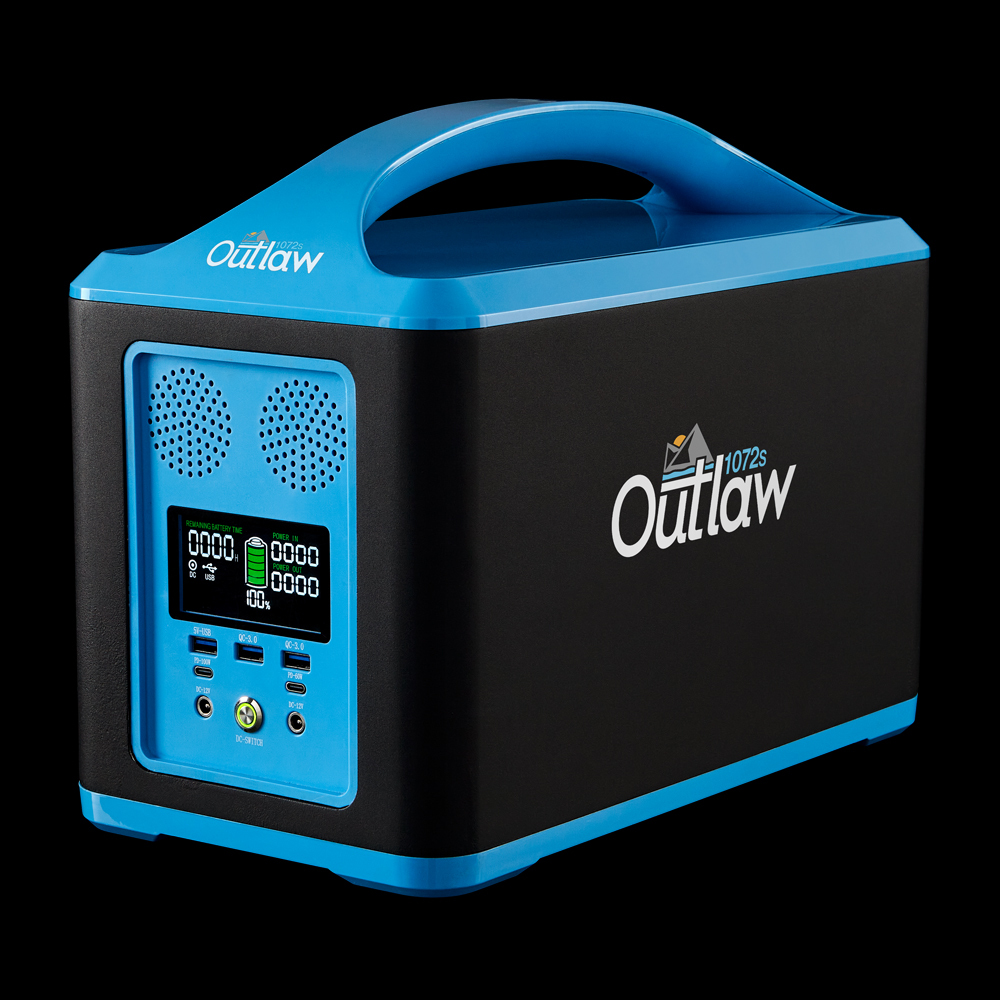Adequate prepping allows people the chance to respond to increased power outages, disruptions in food supplies and lack of access to fresh water. As more people are becoming aware of the frequency of these problems, they are investing more in backup power sources. Increasingly, people are not asking if they should be prepping, but rather, what the most reliable power source is for their prepping needs - from backup generators to lithium battery portable power stations.
Historically, a common choice has been the use of gasoline or diesel-powered generators, but these come with several drawbacks. Alternative solutions that are increasingly being adopted by many are lithium-ion powered generators that offer longer lasting, more reliable power.
Natural disasters are on the rise and the more weather patterns become erratic, the more damaging their impacts become. Depending on where you live, there may be increased earthquakes, stronger than normal hurricanes, or more frequent power outages and storms that cut you off from the grid. Recent outages in the US have left millions without access to water and electricity for weeks at a time in places like Texas and Mississippi. Power outages have left many parts of the country with upwards of 7 to 8 hours of power interruptions in 2020 and 2021.
Prepping And Backup Power
Prepping ensures that daily life can carry on as close to normal in the case of natural or manmade disasters that cut you off from the usual power sources you rely on. What happens when you cannot just turn on the lights or run the water as normal? What happens when you can’t make a run to the store to get more milk and bread?
Advanced preppers have thought of every potential scenario and are ready for when SHTF, but no amount of prepping will matter unless the best energy source is being used to power the most essential items like freezers with stockpiles of food or backup water filtration systems.
Generators - whether battery or fuel-powered, can be used to power all of these systems and more, such as daily tools, and gadgets like phones, computers, GPS systems, radios and modems. Some generators last longer than others though, and the key to selecting the right one for you will depend on what your power needs are. Prepping should be done with the understanding that you actually have no real idea as to the extent of the situation you will deal with in the future. This means that the longer period of time you can maintain your power for, the better. Being able to take your power on the go when needed is also vital to prepping, so choosing lightweight power sources is as important as choosing long-lasting ones.

Batteries for Prepping 101: Basics You Need to Know
- Long-lasting power is needed in any survival situation because you never know when things will return to normal
- It is important to know how many batteries you will need to power all of your electronic systems - from communications to security. Some batteries can generate more power than others in a given timeframe, but nonetheless, there are limits to how much one battery can do. If your battery is being drained by multiple devices at once or you will be using your battery on a constant, long-term basis, you will need more robust batteries, and you will likely need more batteries. As a general rule of thumb, the average American household uses 30 kilowatt-hours per day. Knowing your own kilowatt usage and needs can help you calculate how many batteries you should have.
- How often will you be using your battery? Whether it is being used or not, batteries will naturally have a self-discharge, which can lower its shelf life when not used for long periods of time. If you are not using your batteries frequently - if you have no imminent use for them, or no perceived imminent use for them - then purchasing too many may not be the best choice. Lithium-ion batteries can discharge less than 3% per month, which allows them to be placed in storage and saved for a rainy day in a more effective manner.
- The average temperatures in your climate are also important to understand, as batteries are directly impacted by the weather surrounding your batteries. Colder weather, for example, can cause batteries to operate slower and weaken their power. Lithium-ion batteries are able to be used in temperatures from -4 degrees Fahrenheit to 140 degrees Fahrenheit, which makes them a more dynamic battery choice for all weather conditions.
- Proper storage is key for all batteries, especially with regard to weather conditions. By making sure you store your batteries properly in dry and not too cold environments, you can extend their shelf life.
- Transporting batteries may be needed for many reasons, including during travel, or to get batteries to and from a device. If you know you will be needing to move your battery around a lot, then the weight and size of the battery will be something you need to consider. The average lead acid battery weighs about double that of a lithium-ion battery. This makes lithium-ion a lighter, more versatile choice that you can rely on.
The Two Different Types Of Batteries To Choose From
Non-rechargeable
These batteries are also known as expendable cell batteries. These are used until they finish their electrical payload. These batteries commonly come in the following formats:
- Alkaline
- Nickel
- Lithium-Ion
- Rechargeable
Rechargeable
Unlike the non-rechargeable batteries, the rechargeable ones can have their electrical charge restored after being exhausted. Rechargeable batteries can be found in the following types of batteries:
- Lead Based
- Nickel Based
- Lithium-ion Based
- Silver Based

Lithium Power Station Advantages
Some batteries weigh much less than others, but still offer the same, if not more power simultaneously. Batteries like the RELiON Outlaw 1072S offer a lightweight energy storage solution that can provide long-lasting, easily transportable power to devices as small as coffeemakers, or as large as a refrigerator, all while saving you space with its much smaller footprint.
Prepping is not an exact science and relies on the unknown and unexpected taking place. You will never know when your prepping will come in handy, and simply have to be ready for the next disaster that may arise. This means that your battery may sit on the shelf for extended periods of time, not being used. Lithium-ion batteries offer an advantage in this regard because even when not being used, they have a lower self-discharge over other battery choices like lead acid.
The shelf life of a lithium-ion battery is another one of its advantages for prepping, as they can last as long as 15 to 20 years on average. Batteries need to last for long periods of time, and most other batteries have a lifespan of just 3 to 5 years, meaning that they require continual replacements. This can be avoided with lithium-ion batteries, as they last considerably longer than lead acid batteries.
RELiON has the experience, tools and professionals to help you prepare for any earthquake, power outage or otherwise that may come. If you have questions about our batteries and how they can help you power your life in the event of any doomsday scenario, contact us today.
